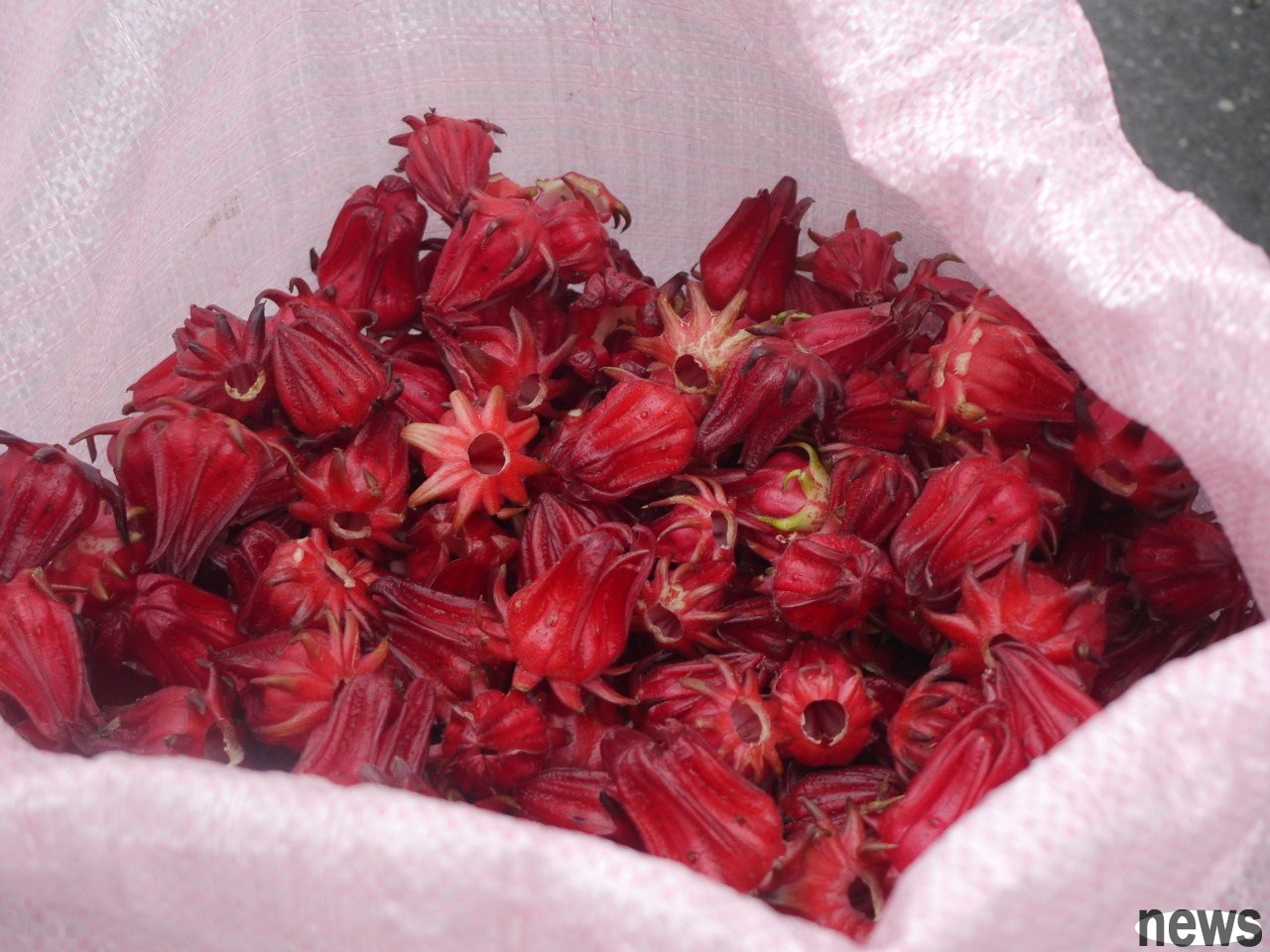
I published on June 29, 2025, that beetroot juice lowers blood pressure and counteracts nitrates. Reader Tsai responded on September 20, 2025:
Thanks to the professor for sharing. I have seen research on hibiscus tea lowering blood pressure before. I wonder how it compares with beetroot juice?Seeing this response, I feel a little sad and warm. Sadly, more than 40 years have passed in the blink of an eye. What’s heartwarming is the “childhood” memory of my college graduation trip.
{9 99}I planned my college graduation trip. It started from Taipei and went through Beiyi, Suhua, Huadong, and back south, all the way to Kenting Eluanbi. The night I stayed at Chiben Hot Spring, I played dice with a grilled sausage vendor, and ended up being lucky and making a lot of money.
During the day, I saw Roselle flowers for the first time in my life along the Huadong Highway in Zhiben. It was a vast field as far as the eye could see. It was really a bit shocking. Of course, because of this convenient location, I bought a few packs of roselle flowers to take home. However, at that time, I was just curious about how a flower (calyx, strictly speaking) could make such a sweet and sour drink. However, I never expected that today, more than 40 years later, I would have the honor to talk about whether it has any health care effects.
Although Roselle has left me with a warm memory, in the past few days, in order to write this article, I couldn’t help but feel very frustrated when I saw the overwhelming praise of it on the Internet. What are the anti-three highs, antioxidant, anti-aging, anti-inflammation, blood vessel cleaning, cholesterol lowering, cancer prevention, liver protection, weight loss, beauty and beauty, and sleep improvement…….
Perhaps, I was still too young more than forty years ago. After drinking a few packets of Zhiben’s Roselle, I just didn’t feel any changes in my body.
In any case, let me now talk about what readers want to know about the effect of lowering blood pressure. There are countless articles on the Internet about this effect, and "Health 2.0" even crowned Roselle with the title "blood pressure lowering magic product".
The article "Health 2.0" states that its discussion is based on a retrospective paper published in 2022, but does not provide a link or title of the paper. However, according to the paper it said was published in the Journal of Cardiovascular Pharmacology, I found that the paper was Efficacy of Hibiscus sabdariffa on Reducing Blood Pressure in Patients With Mild-to-Moderate Hypertension: A Systematic Review and Meta-Analysis of Published Randomized Controlled Trials (The efficacy of roselle in lowering blood pressure in patients with mild to moderate hypertension: a systematic review and meta-analysis of published randomized controlled trials).
The paper concluded that "roselle is effective in reducing systolic and diastolic blood pressure in patients with mild to moderate hypertension, but is not effective in patients with metabolic syndrome," but it goes on to say that "further research is needed to see whether there is a long-term effect." Therefore, it would be a bit premature to say that Roselle is a "blood pressure lowering product" now. After all, if it is really a divine thing, then why hasn’t any medical organization recommended using Roselle to treat high blood pressure for so many years?
In fact, there is a retrospective paper published in the more rigorous journal Cochrane Review in 2021. The tone is quite reserved, and it can even be said to be negative. See Roselle for hypertension in adults. Conclusion: Current evidence is insufficient to determine the effectiveness of Roselle for hypertension in adults compared with placebo in controlling or lowering blood pressure in patients with hypertension. The quality of the evidence was very low due to methodological limitations, imprecision and indirectness.
A research paper published this year also stated that Roselle has no acute effect on blood pressure. Please see Acute effects of Hibiscus sabdariffa on blood pressure and cognitive function. Results: There were no changes in blood pressure 30 and 45 minutes after drinking the hibiscus drink compared to placebo.
However, for the sake of fairness and to avoid generalizations, I need to let readers know that there is a retrospective paper also published in 2022 that also believes that Roselle has the effect of lowering blood pressure. Please see A systematic review and meta-analysis of the effects of Hibiscus sabdariffa on blood pressure and cardiometabolic markers.
As for what readers want to know, "How does it compare with beetroot juice?", my answer is:
1. There is currently no research that directly makes such a comparison.2. Beetroot juice has a clear active ingredient, which is nitrate. Roselle has only general active ingredients, such as anthocyanins, phenolic acids, flavonoids, organic acids, saponins, tannins, etc..
3. Beetroot juice is endorsed by the American Heart Association, but roselle is not.
In short, I personally have no objection to trying to use Roselle to lower blood pressure. However, when the scientific evidence is still insufficient, calling it a "blood pressure lowering magic product" is not what a self-proclaimed health information website should do.
Original text: Is Roselle a magical medicine for lowering blood pressure?